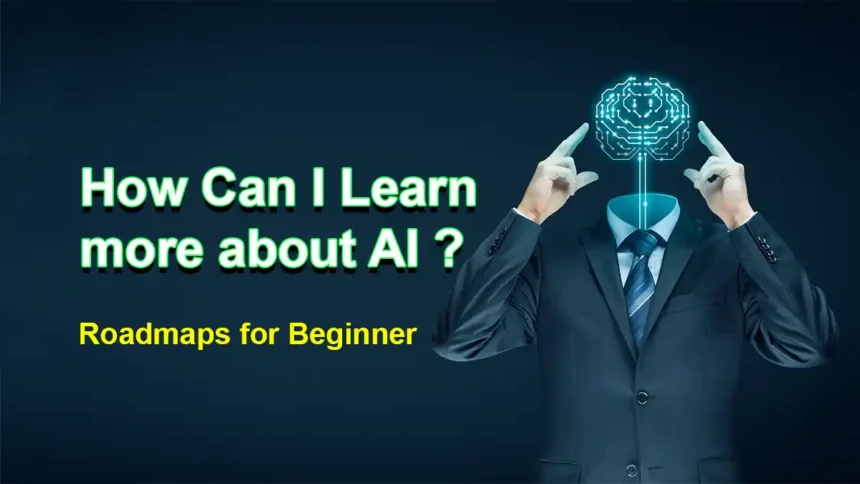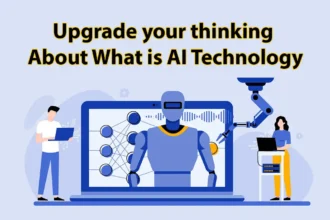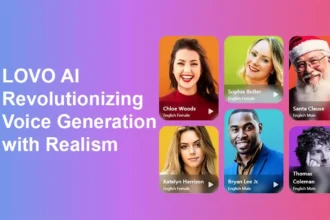How Can I Learn more about AI From Online Resources and Practical Tips
Are you curious about the world of Artificial Intelligence (AI)? It’s similar to entering a world where machines are getting intelligent. To explore AI, start with simple online courses and tutorials. These help you understand the tricky parts in an easy way. Practice by playing with code and doing hands-on projects, it’s like learning while having fun. Connect with others in online groups, read AI stories, and stay updated on what’s new. Whether you’re a beginner and curious to know How Can I Learn more about AI like an adventure, full of curiosity, persistence, and the joy of discovering cool things. So, get ready to explore the AI world and have fun on this learning journey!

Benefits of Learning AI
Before getting knowledge about How Can I Learn more about AI we need to know the Benefits of Learning AI on 2024.
- Hot Jobs and Good Pay: AI skills are super popular, and companies are willing to pay well for them. It’s like having a golden ticket to good job opportunities and high salaries.
- Career Choices Galore: You can use AI in almost any job field you can think of, from hospitals and banks to making cool movies or robots. It’s like having a career buffet with endless options.
- Riding the Innovation Wave: Learning AI means you’re on the wave of cool new stuff. Think of it like being in a movie where you get to discover and work on the latest, coolest projects.
- Super Problem-Solver Skills: AI training is like having a superhero toolbelt for solving problems. It helps you break down big problems into smaller ones and come up with smart solutions.
- Critical Thinking Upgrade: AI isn’t just about tech; it’s about thinking smart. Learning AI boosts your brainpower for critical thinking, data analysis, and making wise choices based on facts.
- Unleash Your Creative Side: AI is like a creative playground. It encourages you to think in unique ways, come up with new ideas, and be a bit of an innovator.
- Never Stop Learning: With AI, your learning journey never ends. It’s like an adventure that keeps going, with every new thing you learn making you better at what you do.
- Making Big Contributions: AI lets you be a superhero in real life. You can use your skills to tackle big issues like health problems, climate change, and making education better.
- Efficiency Booster: Imagine having a superpower to automate things. That’s what AI skills give you – the ability to make tasks easier, processes smoother, and everything more efficient.
- Smart Decision-Making Sidekick: AI is like having a trusty sidekick for decision-making. It analyzes data and gives you the lowdown, helping you make smarter decisions in business, government, and more.
- Tech Wizardry: Learning AI is like being a wizard with technology. It keeps you in the loop about how tech shapes our world and sets you up for whatever the future throws your way.

How to Start Learning AI: AI Learning Resources
Learning Artificial Intelligence (AI) may seem like a step into the future, but don’t worry, we’ve got you covered with our roadmap.
You May Love To Read
1. Online Courses:
For Beginners:
- Coursera: Start with “Machine Learning” and dive into the “Deep Learning Specialization.”
- edX: Explore “Introduction to Artificial Intelligence” and “MIT 6.S191 Introduction to Deep Learning.”
- Udacity: Begin with “Intro to Artificial Intelligence” or opt for the comprehensive “Nanodegree in Artificial Intelligence.”
- Google AI: Check out the “Machine Learning Crash Course” and “TensorFlow Developers” for practical insights.
For Intermediate/Advanced Learners:
- fast.ai: Enroll in “Practical Deep Learning for Coders” to deepen your understanding.
- DeepLearning.ai: Explore specialized courses in “Deep Learning” offered by industry experts.
- Keras.io: Delve into “Advanced Deep Learning with Keras” for hands-on experience.
- OpenAI Gym: If you’re into reinforcement learning, the tutorials here are invaluable.
2. Books and Tutorials:
For Beginners:
- “Hands-On Machine Learning with Scikit-Learn, Keras & TensorFlow” by Aurélien Géron: A practical guide for hands-on learners.
- “Deep Learning with Python” by Francois Chollet: Perfect for understanding deep learning concepts using Python.
- “Artificial Intelligence: A Modern Approach” by Stuart Russell and Peter Norvig: A foundational book introducing AI concepts.
- “Python Crash Course” by Eric Matthes: Essential for those getting started with programming.
For Intermediate/Advanced Learners:
- “Deep Learning” by Ian Goodfellow, Yoshua Bengio, and Aaron Courville: A comprehensive textbook for deep dive learners.
- “Reinforcement Learning: An Introduction” by Richard S. Sutton and Andrew G. Barto: The go-to guide for understanding reinforcement learning.
- “Probabilistic Programming and Bayesian Methods for Hackers” by Campagnolo, Gelman, and Bobak: Ideal for those interested in Bayesian methods.
- “Dive into Deep Learning” by Aston Zhang, Zack C. Lipton, Mu Li, and Alexander J. Smola: Offers practical insights into deep learning concepts.
3. Join AI Communities:
Online Forums:
- Kaggle: Participate in discussions, solve real-world problems, and join competitions.
- Reddit r/MachineLearning: Connect with other learners, ask questions, and share resources.
- Stack Overflow: Seek help with coding challenges and technical AI-related issues.
Slack Communities:
- TensorFlow & PyTorch Communities: Engage with developers using these popular deep learning frameworks.
- OpenAI Gym Community: Dive into discussions on reinforcement learning and take part in challenges.
Local Meetups and Workshops:
- Attend events in your area to network with AI enthusiasts and learn from experts.
4. YouTube Channels:
For Beginners:
- 3Blue1Brown: Simplifies complex AI concepts visually.
- Two Minute Papers: Summarizes recent research papers in short, informative videos.
- Siraj Raval: Provides clear explanations of AI algorithms and techniques.
- Sentdex: Offers practical tutorials and code examples for building AI projects.
For Intermediate/Advanced Learners:
- Lex Fridman Podcast: Interviews leading AI researchers and experts on various topics.
- DeepMind: Features videos on the latest advancements in AI by DeepMind researchers.
- Yann LeCun: Lectures and talks by Yann LeCun, a pioneer in deep learning.
- Andrej Karpathy: Lectures and blog posts by Andrej Karpathy, a researcher at Tesla AI.
Understanding the Key Concepts in AI
Let’s explore the magic of Artificial Intelligence (AI) through three simple concepts that bring machines to life.
1. Machine Learning – Making Computers Smart
Machine Learning is like teaching computers to learn by themselves. It’s like a magical school where computers get better at tasks as they see more examples. Instead of giving strict instructions, we show them examples, and the more they see, the smarter they become. It’s like students learning and improving with each lesson.
2. Neural Networks – Your Brainy AI Friends
Think of Neural Networks as AI having its own set of brains. These ‘brains’ work together, breaking down complex tasks, just like friends collaborating to solve a puzzle. Each ‘neuron’ has a role, helping AI understand patterns, recognize images, or even understand language. It’s like having a team of brainy friends working together – each with its unique talent.
3. Natural Language Processing – Chatting with Computers
Natural Language Processing is the magic that lets computers understand how we talk. It’s what makes your smart speaker comprehend your commands, making it feel like you’re having a chat with a digital friend. NLP is like a language class for computers, helping them understand words, phrases, context, and even emotions. So, when you talk to your device, it’s not just hearing words; it’s understanding the language’s ins and outs.

Practical Applications of AI
AI is a useful assistant that makes life easier in many different ways, it’s not just a trendy term in technology. Now let’s look at some typical instances where AI can be useful.
1. AI in Healthcare – Your Super-Smart Doctor
Picture having a super-smart doctor always ready to assist. AI in healthcare goes beyond diagnosing – it crafts personalized treatments just for you. It’s like having a health sidekick, keeping you in the best shape possible.
2. AI in Finance – Your Money Mentor
Dream of having a money mentor? AI in finance makes it happen! It’s not just about managing money; it’s your fraud-preventing, investment-savvy companion. AI ensures your finances stay secure and growing.
3. AI in Marketing – Your Personal Ad Assistant
Tired of irrelevant ads? AI in marketing acts as your personal ad assistant, showing you only what you’re interested in. It’s like having a shopping buddy who knows your style, making your online experience more enjoyable.
You May Love To Read
4. AI in Education – Smart Learning Buddy
Education gets a boost with AI as your smart learning buddy. It tailors lessons to your style, providing extra help when needed. It’s like having a 24/7 tutor, making sure every student gets the support they deserve.
5. AI in Transportation – Your Travel Companion
AI in transportation becomes your travel companion. It doesn’t just give directions; it optimizes traffic, predicts delays, and enhances safety. It’s like a digital co-pilot ensuring your journey is smooth and stress-free.
6. AI in Agriculture – Your Crop Caretaker
In agriculture, AI becomes your crop caretaker. It watches over crops, predicts diseases, and optimizes irrigation. It’s like having a vigilant farmhand ensuring your crops thrive for better yields.
7. AI in Entertainment – Your Content Curator
AI in entertainment acts as your content curator. It suggests movies, music, and shows tailored to your taste. It’s like having a friend who always knows what you’d enjoy, making your leisure time more fun.
8. AI in Customer Service – Supportive Assistant
Ever wished for a supportive assistant during customer service? AI steps in, offering quick responses and efficient issue resolution. It’s like having a reliable assistant ensuring your concerns are promptly addressed.
Challenges in Learning AI
Brain Drain: Complex Concepts
AI has tricky ideas like hard math and algorithms. It might feel tough, but take it slow. Ask for help, and soon, these brainy challenges will make sense.
Code Crusaders: Programming Skills Required
Making AI needs coding skills. Think of it as becoming a code hero. Start simple, learn step by step, and soon you’ll create cool stuff with your code.
Data Dilemma: Messy Data Challenges
Handling data in AI can be messy, like cleaning a virtual room. It might seem confusing, but with the right tools, sorting data becomes easier. It’s like turning chaos into order on your AI journey.
Hardware Hangout: Power and Price
Getting strong computers for AI can be hard because they’re pricey. Think of it like searching for a good hangout. Explore options, like cloud services, to find the right tools without breaking the bank.
Motivation Maze: Staying Focused
AI projects can be tough, and you’ll need focus. Picture it as finding your way through a maze. Break tasks into small goals, celebrate wins, and stay motivated, overcoming challenges on your AI adventure.
Job Jungle: Finding the Right AI Opportunity
Looking for the perfect AI job is like exploring a jungle. It’s tricky, but know yourself, connect with others, and keep learning. With determination, you’ll find the right opportunity in the AI world.

Common Misconceptions about Learning AI
Before we started How Can I Learn more about AI, most of the beginner have some Misconceptions about Learning AI. It should be clear to Starting AI Journey. Let’s explore the Misconceptions about Learning AI:
Myth #1: You need to be a genius to learn AI.
Reality: Learning AI isn’t just for geniuses. Sure, knowing some math and programming helps, but it’s getting simpler for everyone. Thanks to easy online courses and interactive tools, diving into AI is like taking a friendly stroll, not climbing Mount Everest.
Myth #2: AI will steal your job.
Reality: AI won’t snatch your job; it’s more like a helpful teammate. While it takes care of repetitive tasks, it opens doors to new job possibilities. Think of AI skills as a secret weapon, making you more valuable for interesting work across different fields.
Myth #3: Learning AI requires expensive stuff.
Reality: You don’t need a fortune to learn AI. Online resources only ask for a basic computer and internet. Fancy gadgets are cool, but you can start your AI adventure with what you already have – no need to empty your piggy bank.
Myth #4: AI is all about robots taking over.
Reality: AI is more than robot takeovers. It works in healthcare, education, and protecting the environment. AI is about humans and machines teaming up for good things, not robots trying to be the boss.
Myth #5: Learning AI is a one-time thing.
Reality: Learning AI is like a never-ending story. It’s not a sprint; it’s a marathon. Keep learning, go with the flow, and enjoy the journey. AI is always evolving, and staying on the learning train keeps you in the loop.
Conclusion on How Can I Learn more about AI
Learning about AI is like going on a super fun adventure, no need to be a tech genius! All you need is curiosity, a bit of persistence, and a sprinkle of fun. Picture yourself in an AI superhero cape, ready to dive into the cool world of Artificial Intelligence. It’s not about confusing stuff; it’s like taking small steps to discover awesome things. With online courses and interactive tools as your buddies, you can start this journey whenever you want. So, get set for a super exciting ride where every click and code brings you closer to the amazing world of AI. Enjoy the learning ride, and soon you’ll be an AI superhero with a big grin!
FAQs on How Can I Learn more about AI
What do I need to start learning AI?
All you need is curiosity and a willingness to learn. You don’t need to be a tech wizard to begin your AI journey.
Can I learn AI without being a math expert?
Absolutely! Many resources simplify the math, focusing on practical understanding rather than complex equations.
Are there free resources for learning AI?
Yes, many online platforms offer free AI courses. You can start your AI journey without breaking the bank.
How long does it take to become good at AI?
The journey’s duration varies, but with consistent effort, you’ll notice progress. Celebrate small wins along the way!
What jobs can I get after learning AI?
AI opens doors to various careers, including data science, machine learning engineering, and AI research. The possibilities are exciting!
What is the best way to learn about AI?
Start with easy online courses and tutorials. Practice with hands-on projects to understand AI basics. Learning by doing is the key.
How do you gain knowledge about AI?
Read beginner-friendly materials, join online communities, and follow industry updates. Practice coding and engage in projects for practical learning.
How can I develop my AI skills?
Practice coding regularly, work on AI projects, and explore real-world datasets. Take online AI courses and connect with professionals in the field for networking.
How can I study AI after 12th?
Begin with foundational courses in math and programming. Explore AI courses, consider a degree in related fields, and enhance skills through self-study, projects, and internships.























